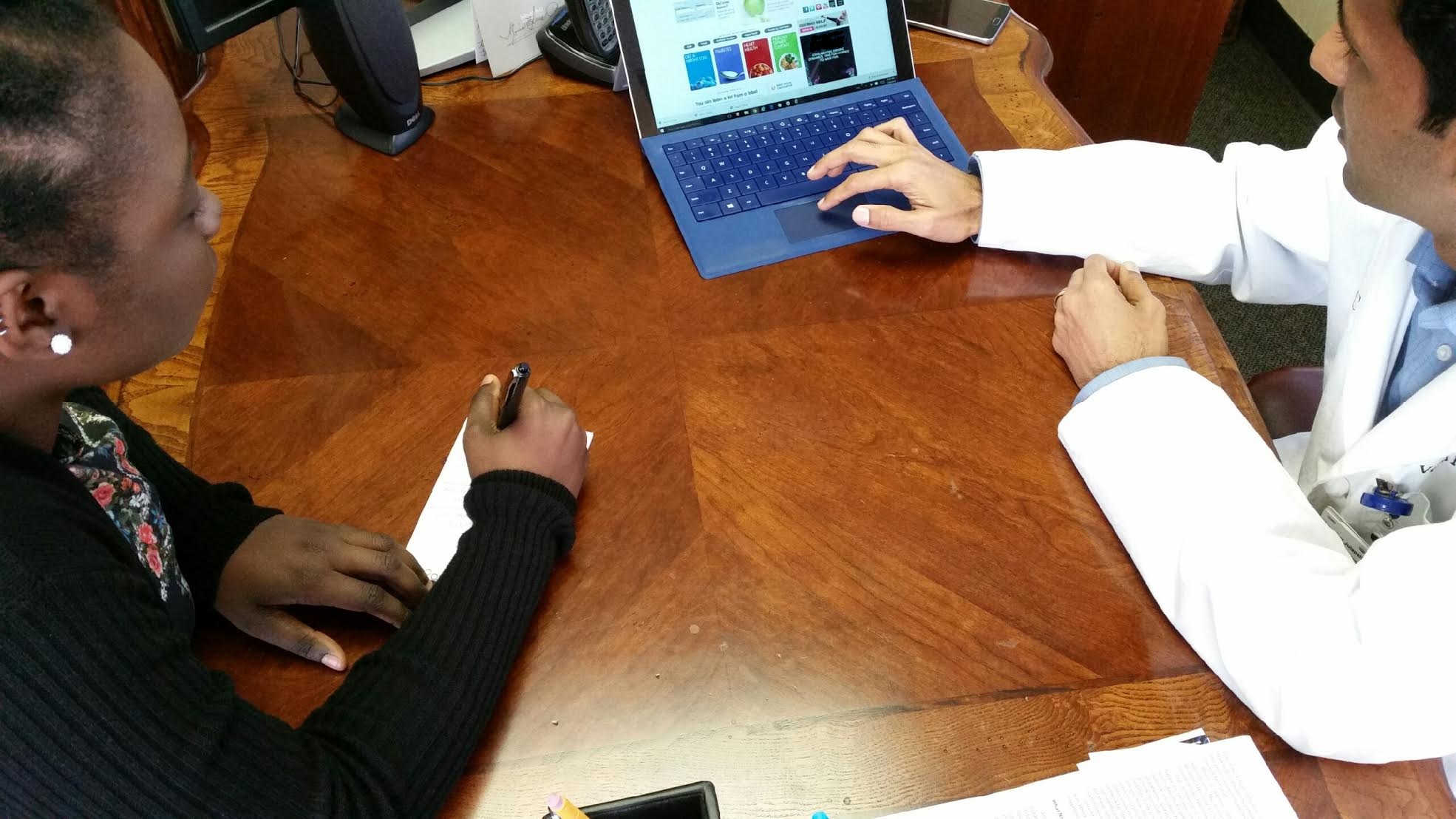What Makes Me Different
Integrating the Art and Science of Medicine
I take a very holistic approach to gastroenterology, and medicine in general. I stand at the intersection of traditional and non-traditional health care. I learned the traditional very well at the world-renowned Texas Medical Center. But none of that traditional learning meant much when I started suffering from reflux myself. My own struggles with reflux have taught me more about gastrointestinal imbalances than any textbook or training ever could. As a result, I’ve integrated my understanding of the best of conventional medicine with the best of what non-conventional medicine has to offer.
Conventional versus so-called alternative medicine is not an either/or proposition for me — it’s a both/and opportunity. I understand that patients often gain the impression from the conventional medicine camp that alternative health care practitioners are quacks. Then the alternative medicine advocates say conventional medicine just focuses on money. I think this is a bit of nonsense on both sides. It’s closed-minded thinking.
I’ve seen how conventional medicine starts to fall apart for people. I bring that experience to bear in how I work with patients…but I don’t throw the conventional baby out with the bathwater. I’ve also seen patients hit a brick wall with exclusively alternative approaches. It doesn’t have to be this way.
I’ve walked this walk myself as someone who has struggled with irritable bowel syndrome in the past and reflux more recently. I have skin in this game. I teach patients the same skills I myself have consistently practiced to get beyond my own GI symptoms. Training, knowledge, and expertise allow me to put the pieces together for patients; personal experience enables me to take a personalized approach that works for you. And my learning never ends. Whatever I’m learning about myself, I pass along to you.
How does this translate to my practice? It means that treating you isn’t just about high-tech procedures and imaging studies, but also about trust and empathy. It’s not just about acute care medicine, but also about what I call “root care medicine.” It’s not just about relieving symptoms with medications, but also about helping you uncover what’s driving the symptoms in the first place. And hopefully not needing medications indefinitely for them.
I believe a patient’s gastrointestinal imbalances are treated best with an approach that takes biological, psychological, cultural, and spiritual perspectives into account, as appropriate to the problems at hand. An approach that is certainly evidence-informed – but also not evidence-enslaved. Because there is no one-size-fits-all in medicine. Every person is unique. What works best for me, or the population, may not work best for you.
My experience has taught me the power of integrating the art and science of medicine. It’s what allows me to think both inside and outside the box in teaching you to overcome your own digestive challenges.

Diving Deep into the Black Box
Take irritable bowel syndrome (IBS), for example. I know from experience that IBS tends to be a “black box” diagnosis that’s often made without any real exploration of what may be causing it, behind the scenes. Is there a food sensitivity involved, or vitamin deficiencies that need to be addressed? Is an autoimmune dysfunction affecting your thyroid, which could in turn be influencing your IBS symptoms? Could there be underlying small intestinal bacterial overgrowth (SIBO)? These are just some of many possibilities that I might investigate and untangle.
Or take inflammatory bowel disease (IBD), which includes ulcerative colitis and Crohn’s disease. Through my traditional training, I have a solid understanding of how medications and surgery for ulcerative colitis and Crohn’s disease can help with these illnesses. But as IBD is an autoimmune condition, I also know how autoimmunity is influenced by what is going on at the gut level. So along with advice on medications, I also focus on implementing necessary nutritional changes. This serves as a solid foundation we can build on through deep investigation of the mind-gut connection and other factors affecting your health. Such lifestyle interventions can then dial down your immune system and bring about sustainable success.
Medications and surgery always come with a price, including the potential for unwanted side effects. You need to have a strategy that goes beyond them. If you have IBD, that strategy should keep you from going into crisis mode and needing medications like high-dose steroids or surgery that removes important gut. If you have IBS, that strategy should make medications not necessary at all.
And what would be my greatest satisfaction? To be able to say to you that you don’t need me anymore.
Communicating Without Filters
For those times you do need me, effective communication between me and you is central to my mission. Patients value easy and efficient access to their doctor. I certainly do too.
That’s why we strive to keep a close connection between you and our practice in scheduling appointments, discussing test results, and addressing questions. When you call us during regular business hours, you’ll reach our small, hard-working staff. Not an endless, automated phone system. An answering service is available to take calls at all other times of the day. Often I will follow-up with you directly. And since from the beginning we’ve believed so strongly in electronic connectivity, your electronic medical record is at our fingertips to help us address your concerns readily.
